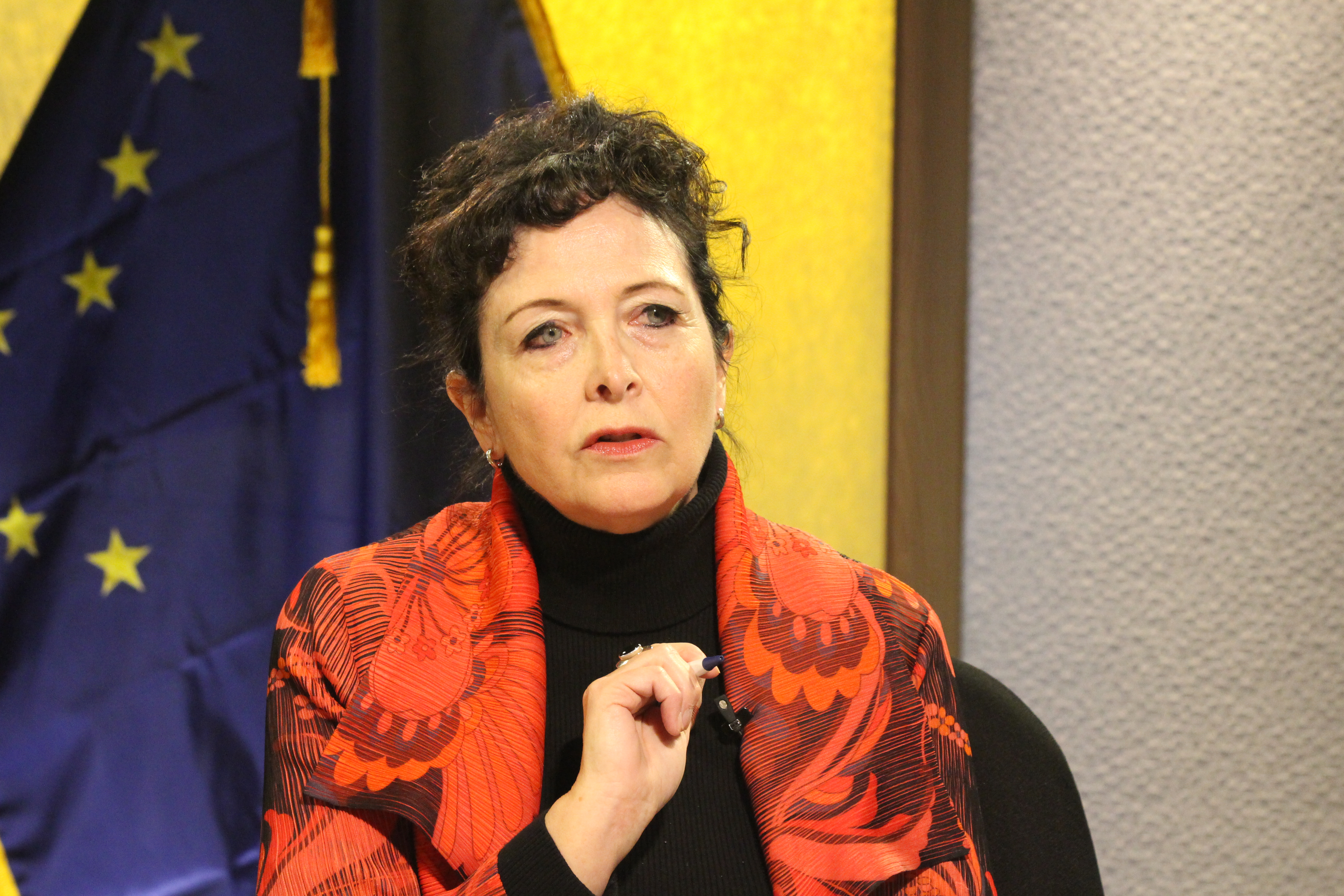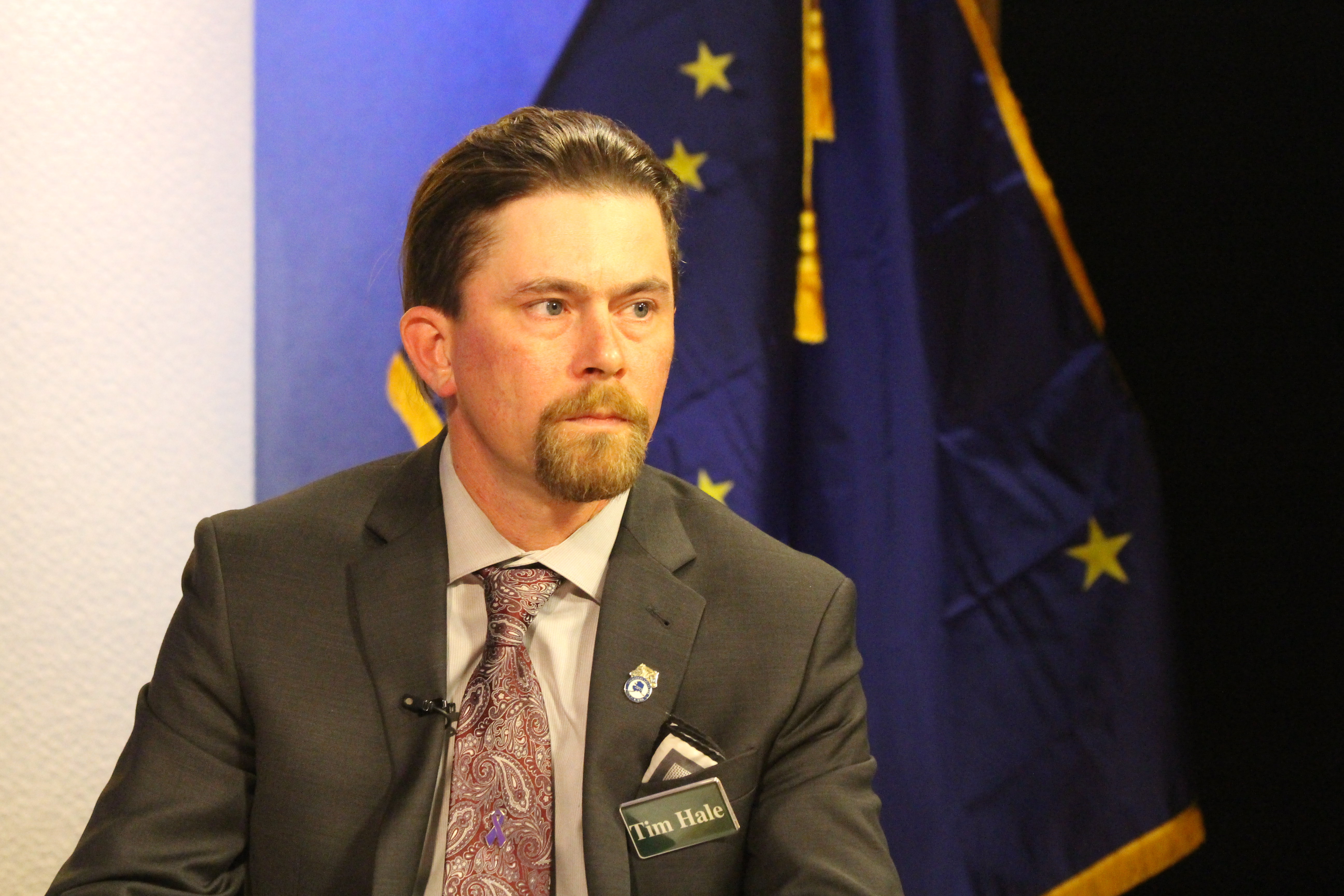When Senator Bill Stoltz announced his retirement from political life, he left Senate F seat up for grabs. Senate F bridges the Anchorage suburbs of Chugiak and Peters Creek with the greater Palmer-Wasilla area, two regions with strong Republican leanings. Now Republican Representative Shelly Hughes has set her sights on Senate F, but newcomer Tim Hale wants to give her a run for the money.

Former state representative Shelley Hughes has represented the District 11 half of Senate F for the past two terms. Hughes was appointed to the House in 2012, and went on to win two successive elections.
Hughes has lived in Alaska communities from Southeast to the Arctic. She’s been a librarian in Fort Yukon, a volunteer radio broadcaster in Bethel, even a farmhand in Hoonah.
“In fact, we were trying to live off the the land, which was challenging because of the rain forest. Initially, we were trying to do it with oxen.. we were featured in National Geographic at one point,” Hughes said.
A Palmer resident for over two decades, she prides herself on her frugality. Hughes told KAKM -TV recently, that reducing the state budget is priority number one during the next session.
“In the district, the constituents have been letting me know that loud and clear the last couple of years,” Hughes said. “They want to see reductions first.”
She calls a $4 billion or less budget “a very achievable amount.”

Tim Hale disputes further budget cuts. Hale is a political upstart from Valdez, the boyhood home of current Governor Bill Walker and the home of Alaska’s first governor, Bill Egan. He’s living in Palmer now, working as a construction surveyor and running as an independent. Hale calls the current state budget situation a “disaster.”
“And it’s one that the Institute of Social and Economic Research has been warning us about since before the Representative was appointed to her seat,” Hale said. “Yet the leadership that she supports has continued with these policies that have put us on the hook for one point one billion dollars in cash payments to for-profit entities in fiscal year 2018.”
It’s statements like that that that prompt Hughes to paint Hale as a Democrat in disguise.
“You have stated that you are an independent, yet it is clear you have a lot of Democratic support,” Hughes said. “My question to you is, if you were elected, would you caucus with the Democrats?”
Hale counters he’ll stick with anyone willing to back ISER’s current budget plan, although he’s brash enough to say he’ll go his own way, if necessary.
“I’d have a very difficult time caucusing with any of the current leaders in the legislature, mainly because they have not taken to heart ISER’s warnings,” Hale countered. “I intend to start my own caucus, and if that does not work, I may be in a broom closet.”
Hale wants to follow the ISER formula of reducing state spending, instituting a new tax, and using a portion of the Permanent Fund earnings to balance the budget. He says he wants to raise $700 million with a 1% flat rate income tax and bolster that with a flat rate sales tax.
Hughes says she favors a different model. She’ll cut to a what she believes is a sustainable $4 billion budget, then put a state sales tax before voters.
“I have a proposal where you get down to that. You bring the reductions down to that sustainable amount, and then you assess, Hughes continued. “If there is still a gap, then you do the statewide sales tax. If people wanted to put a PFD reductions or restructuring or anything, I think that should go on the ballot. If that is denied, then you have to look at the sales tax again.”
Hughes says further education cuts could be necessary, and she favors a plan to consolidate the three UA campuses, merging administration costs, while better using technology to reach students. Hale was not specific as to how he’d handle education cuts. But he wants to put legislators on a $75 per day per diem and give them the option of living in a Juneau bunkhouse.
Both candidates have ideas about diversifying the economy. Hughes points to her work with drones.
“You talk about diversification,” Hughes said. “There’s going to be a billion dollar plus annually in that industry.”
Hale’s on-board with cannabis.
“With this whole cannabis legalization thing, we are missing a big point. And that’s industrial hemp,” Hale said. “This area where we live is very much a farming community. And we could be growing acres and acres of hemp for fiber, and we could have a manufacturing plant down there at Point MacKenzie at the port.”
Hale wants to be riding the crest of an anti-incumbent wave that swept a number of Valley representatives out of the general election during the August primary, although Hughes beat two challengers in the primary to get her party’s nomination for Senate F.
APTI Reporter-Producer Ellen Lockyer started her radio career in the late 1980s, after a stint at bush Alaska weekly newspapers, the Copper Valley Views and the Cordova Times. When the Exxon Valdez ran aground in Prince William Sound, Valdez Public Radio station KCHU needed a reporter, and Ellen picked up the microphone.
Since then, she has literally traveled the length of the state, from Attu to Eagle and from Barrow to Juneau, covering Alaska stories on the ground for the AK show, Alaska News Nightly, the Alaska Morning News and for Anchorage public radio station, KSKA
elockyer (at) alaskapublic (dot) org | 907.550.8446 | About Ellen




